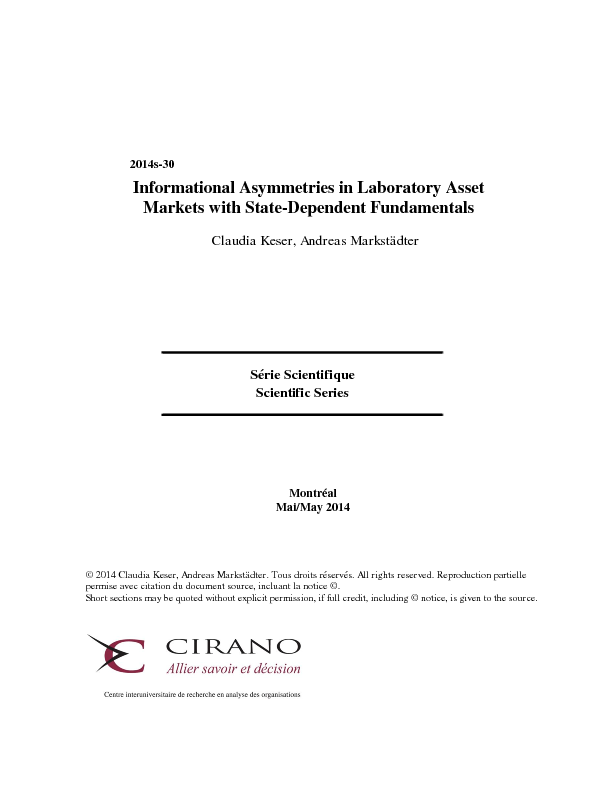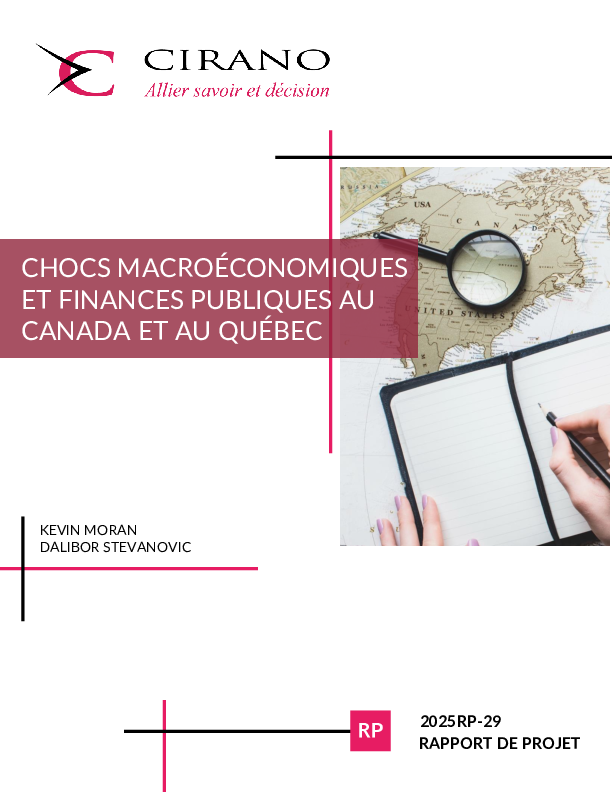Informational Asymmetries in Laboratory Asset Markets with State-Dependent Fundamentals
We investigate the formation of market prices in a new experimental setting involving multi-period call-auction asset markets with state-dependent fundamentals. We are particularly interested in two informational aspects: (1) the role of traders who are informed about the true state and/or (2) the impact of the provision of Bayesian updates of the assets' state-dependent fundamental values (BFVs) to all traders. We find that bubbles are a rare phenomenon in all of our treatments. Markets with asymmetrically informed traders exhibit smaller price deviations from fundamentals than markets without informed traders. The provision of BFVs has little to no effect. Behavior of informed and uninformed traders differs in early periods but converges over time. On average, uninformed traders offer lower (higher) limit prices and hold less (more) assets than informed traders in good-state (bad-state) markets. Informed traders earn superior profits.
[ - ]




